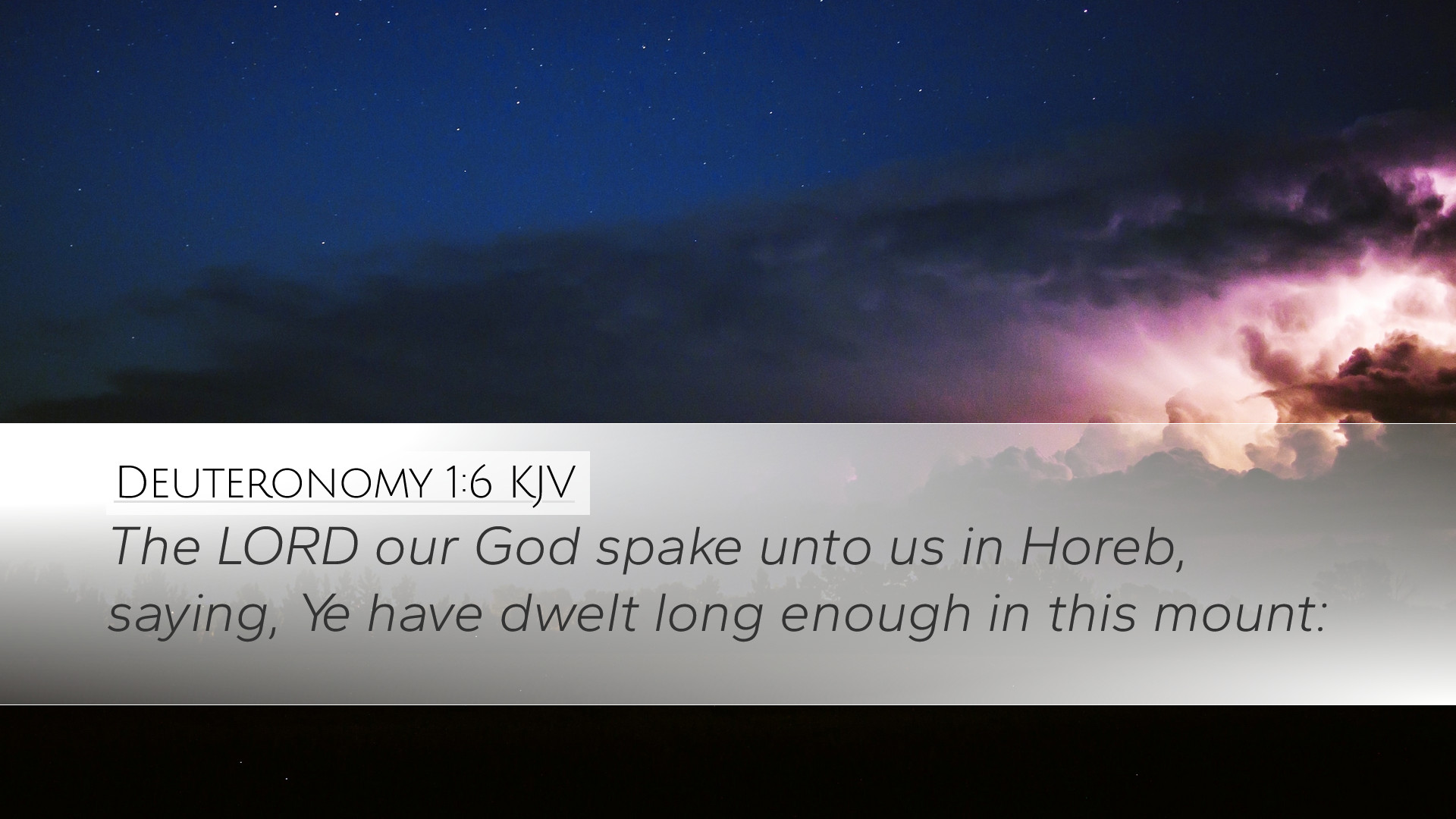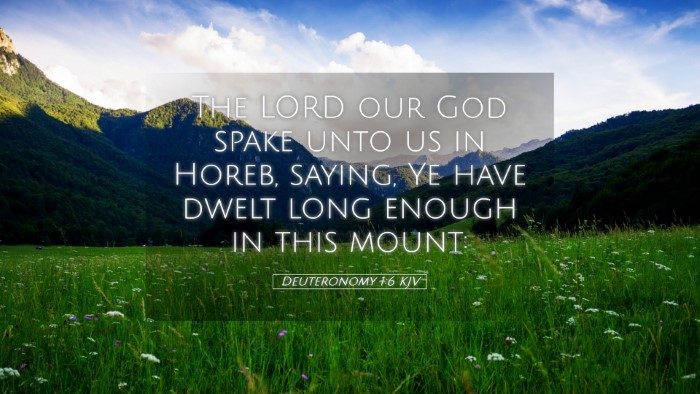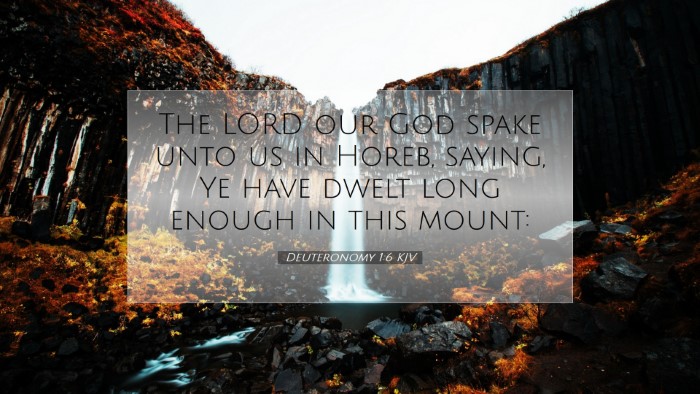Commentary on Deuteronomy 1:6
Deuteronomy 1:6 states: "The LORD our God spoke to us at Horeb, saying: 'You have stayed long enough at this mountain.'" This verse marks a pivotal moment in the journey of the Israelites as they prepare to transition from their time of waiting to a journey toward the Promised Land.
Context and Background
In the broader context of Deuteronomy, Moses addresses the people of Israel, reminding them of their journey from Egypt through the wilderness. The reference to Horeb invokes memories of divine revelation, specifically the giving of the Law, emphasizing that their stay at the mountain was not without purpose.
Insights from Matthew Henry
Matthew Henry comments on this verse with a focus on the concept of divine guidance. He stresses that the call to move on from Horeb signifies God's desire for His people to progress. Henry points out:
- Divine Timing: God's commands often come at the right moment, urging His people to advance in their spiritual journeys.
- Comfort in Transition: The stay at Horeb provided necessary divine instruction, but the subsequent move symbolizes growth and empowerment.
Henry further elaborates that this command not only serves as a literal call to action for the Israelites but also serves as a metaphor for believers today, prompting them to recognise when they are stagnant in their faith and need to seek further growth.
Insights from Albert Barnes
Albert Barnes highlights the significance of Horeb as a place of revelation. He observes that Israel's prolonged stay was marked by God's instruction, yet it was critical for them not to become complacent. Barnes notes:
- Spiritual Complacency: The danger of remaining too long in one spiritual state can lead to stagnation. God’s call is often a wake-up call for believers to pursue further knowledge and grace.
- The Nature of Guidance: God's guidance is intentional; He has prepared a path for His people that goes beyond mere instruction at a single location.
Barnes suggests that just as the Israelites needed to leave Horeb behind, believers are called to move forward in faith, seeking God’s will as they navigate life’s journey.
Insights from Adam Clarke
Adam Clarke offers a detailed examination of the situation at Horeb, emphasizing the critical role of obedience in the Israelite journey. Clarke argues:
- Obedience and Progress: The command to leave signifies that obedience to God's directives often requires action and departure from familiar settings.
- Lessons from the Wilderness: The wilderness experience serves as a foundational period where lessons can be learned, but it must not become a permanent residence.
Clarke reflects on the emotional and spiritual challenges of leaving one’s comfort zone, encouraging readers to embrace the journey God sets before them, understanding that it leads to deeper faith and fulfillment of divine promises.
Theological Implications
From the combined insights of these commentators, several theological themes emerge:
- God's Sovereignty: The assertion that God speaks and directs His people underscores His active role in guiding them toward His purposes.
- Transformation and Growth: The necessity of moving on from Horeb signals a broader theme of the Christian life, which calls for continual growth and transformation through obedience to God’s Word.
- The Journey of Faith: The journey depicted in this passage reflects the ongoing nature of faith where believers are always progressing toward spiritual maturity and fulfillment of God's promises.
Conclusion
Deuteronomy 1:6 serves as a poignant reminder that divine guidance often challenges believers to assess their spiritual state and prompt a response to move forward. As pastors, students, theologians, and scholars, we must encourage ourselves and others to heed God’s call, recognize when it is time to transition, and embrace the path He has set before us.


